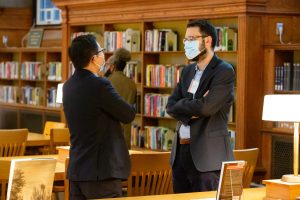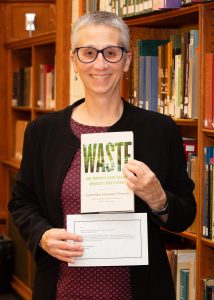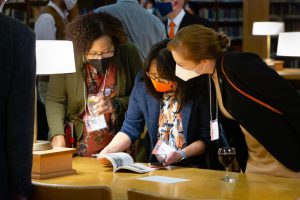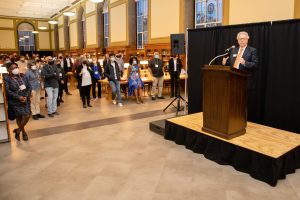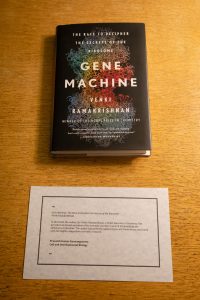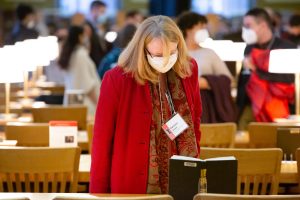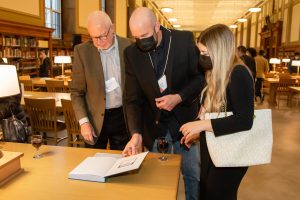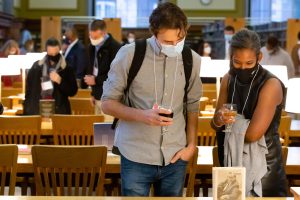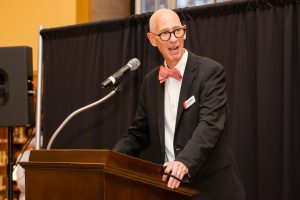Pierre Albin (Mathematics)
Geometric Scattering Theory by Richard Melrose
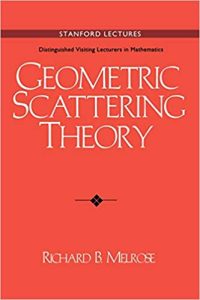
This book, written by my postdoctoral mentor and mathematical grandfather, has been a constant source of inspiration. His approach to special geometric situations by cleverly changing the category and developing the ‘usual’ analysis through a geometric toolkit is powerful and adaptable and often gifts you with precise refined results.
Can Bayram (Electrical and Computer Engineering)
Flow by Mihaly Csikszentmihalyi
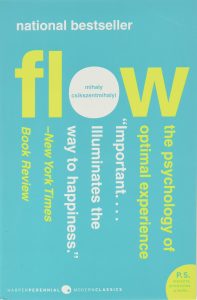
We all can experience deep enjoyment, creativity, and a total involvement with life through what the author calls as the state of “flow”. In this book, the author demonstrates the way we can control this positive state, not leave it just to chance. A book to befriend for life, in a “flow”, go against the flow…
Marni Boppart (Kinesiology and Community Health)
Into the Wild by Jon Krakauer
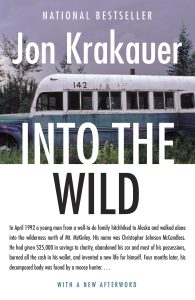
Book about a young man who hitchhiked to Alaska and walked alone into the wilderness of Mt McKinley, never to return. This story captured me due to my fascination with nature, but also taught me the vital importance of human relationships in our desire to find peace and happiness in life.
Jose B. Capino (English)
Noli me tangere by Jose Rizal
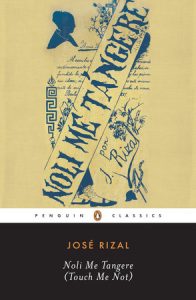
This immensely consequential social novel by the Filipino polymath and National Hero has shaped my understanding of colonialism and political signification in art, two abiding concerns of my scholarly life. Lacson-Locsin’s translation was edited by my mentor Doreen Fernandez. I hear Doreen’s voice alongside Rizal’s when I read this edition.
Stephanie Ceman (Cell and Developmental Biology)
Did You Ever Have a Family by Bill Clegg
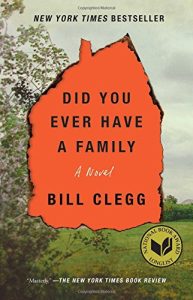
“Rough as life can be, we are supposed to stick around and play our parts. And it might be that you never knew the part you played, what it meant to someone to watch you make your way.” This musing captures the meaning and importance of day to day life.
Maria Chu (Agricultural and Biological Engineering)
Harry Potter and the Deathly Hollows by J.K. Rowling
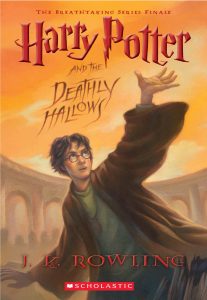
Harry Potter books are a depiction of a long and arduous journey that finally culminated in the Deathly Hallows, where everything falls in their proper places despite the losses and trials. This journey resonates well with my personal and professional journey with getting tenure as the culmination so far.
Amanda Ciafone (Media and Cinema Studies)
The Care Manifesto: The Politics of Interdependence by The Care Collective
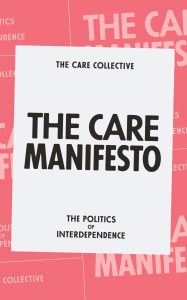
For readers of the future, let this little pink book serve as a record of this moment in which we acknowledge our mutual interdependence and vulnerabilities, and hopefully build a politics of collective care. Thank you to all the people, communities, and environments that have cared for me.
Joseph Clougherty (Business Administration)
The Reckoning by David Halberstram
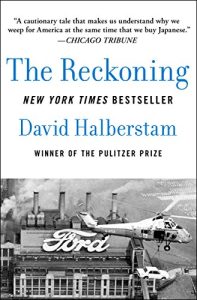
Halberstram’s study of the American and Japanese automobile industries sparked my interest as an undergraduate in the importance of the global economy. The confluence of economics, business, politics and institutions manifested in this forty year history of Ford and Nissan would represent the forces I have attempted to better understand over my scholarly career.
Jessica Conroy (Geology)
Underland: A Deep Time Journey by Robert MacFarlane
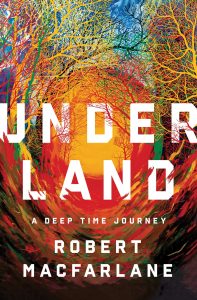
As a paleoclimatologist, I view the world’s changing climate through the lens of deep time. This book explores that worldview in beautiful, lyrical prose and reminds me of why I chose my discipline.
Jill Craft (Food Science and Human Nutrition)
Setting the Table: The Transforming Power of Hospitality in Business by Danny Meyer
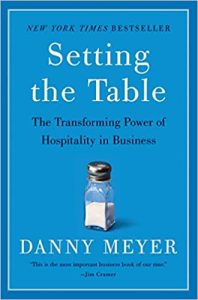
This book beautifully articulates the importance of hospitality not just in the hospitality industry but in all business. As Meyer says, “It’s creating positive, uplifting outcomes.” The world could use a little more hospitality.
Lynne M. Dearborn (Architecture)
Waste: One Woman’s Fight Against America’s Dirty Secret by Catherine Coleman Flowers
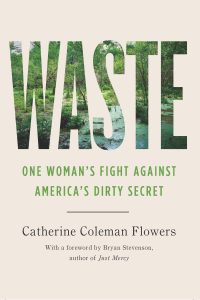
Using environmental and racial justice lenses, Coleman tells important stories that highlight a critical dimension of social justice — the urban-rural divide relative to critical physical and environmental infrastructure — with significant implications for health and quality of life in rural communities.
Tatyana Deryugina (Finance)
Women Don’t Ask by Linda Babcock and Sara Lashever
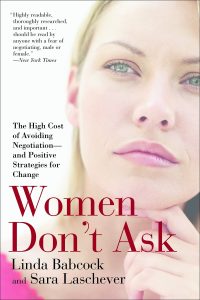
I read this book when I was in college. It made me understand the importance of advocating for myself and of actively pursuing what I wanted/deserved rather than hoping someone would just give it to me unprompted.
Lisa Dixon (Theatre)
I Dream A World: Portrait of Black Women Who Changed America by Brian Lanker
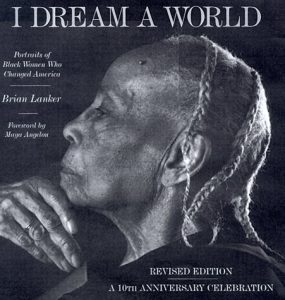
Given as a gift to my mum on Mother’s Day. We spent time poring over every page, and learning more about each other than we might otherwise. We bonded over possibility. I recognized the foundation she laid for me. It reminds me of the invaluable presence of Black Women in our society.
Fei Du (Accounting)
Judgement and Decision Making in Accounting by Sarah E. Bonner
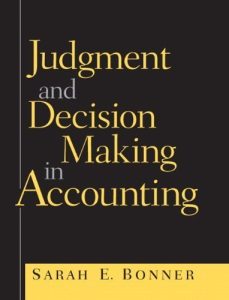
Sarah condensed 1,500 accounting papers into this book. She picked up the leaves and planted a tree. She gave me the map of accounting research.
Ahmed Elbanna (Civil and Environmental Engineering)
Kalila wa-Dimna by Ibn Al-Muqaffa
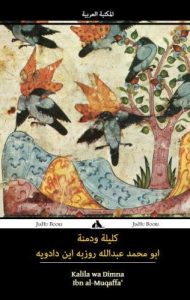
This is a collection of fantastic fables about human nature, society, and politics, narrated through animals and birds. I loved the book when I first read it 25 years ago and I still do. I hope it continues to entertain and educate generations to comes as it did over the last 12 centuries.
Georgios Fellouris (Statistics)
Sequential Analysis by Abraham Wald
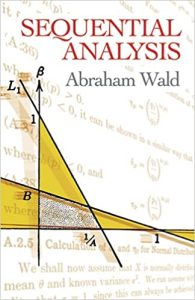
Τhis is the classical book in which Abraham Wald presented his groundbreaking statistical theory and methods that did not assume a predetermined sample size. It has had a tremendous impact on my thinking and research. Its exceptional clarity and elegance still make it very inspirational to me.
Runhuan Feng (Mathematics)
An Introduction to Computational Risk Management of Equity- Linked Insurance by Runhuan Feng
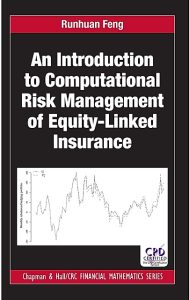
When I was promoted to associate professor, I promised myself that I would select a book of my own writing for the full professor bookplate. I did it! Here is to my escaping youth and ever-growing wisdom. Write for your passion and you will find it rewarding no matter what.
Alexandra Harmon-Threatt (Entomology)
The Warmth of Other Suns by Isabel Wilkerson
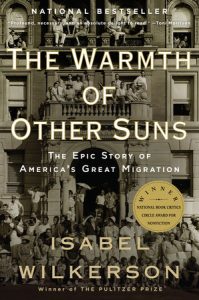
I am the granddaughter of 4 Black grandparents who moved north in search of the warmth of other suns… I am their dreams realized. May we all find places that welcome us and improve us regardless of where we come from.
David. L Hays (Landscape Architecture)
Garden at Monceau by Carmontelle

Carmontelle’s design for the Jardin de Monceau was the subject of my undergraduate thesis and my first scholarly publication. The core archival research for my part of this new book project was completed in Paris thirty years ago, while I was a senior in college—a magical, formative time for me.
Jeremiah Heller (Mathematics)
The Tassajara Bread Book by Edward Espe Brown
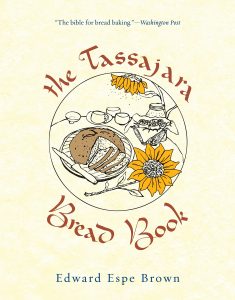
Written in the late 60’s by a Zen student living in a Buddhist monastery in California. I’ve been baking from this book for as long as I’ve been able to read. The recipes are simple, efficient and to the point. And most importantly, delicious.
Rana Hogarth (History)
The Collected Poem of Frank O’Hara by Frank O’Hara
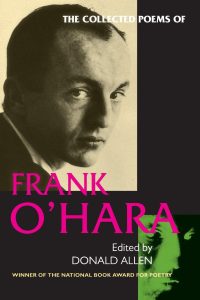
Frank O’Hara’s poetry keeps me grounded and makes me laugh, which is necessary in this line of work…
Barry Houser (Music)
The Energy Bus by Jon Gordon
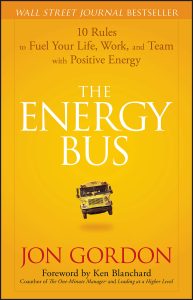
Given the challenges and adversity we face daily, The Energy Bus provides purpose, vision and spirit for us to MARCH FORWARD down a path of positivity. Let’s be positive and make the world a better place! GO ILLINI!
Fatima Husain (Speech and Hearing Science)
Canon of Medicine Vol. 3 Special Pathologies by Avicenna (Ibn-Sina)
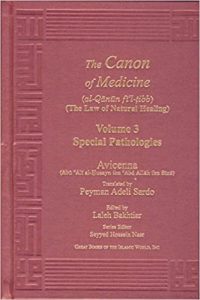
I study tinnitus, using brain imaging and latest techniques. But, tinnitus is not new. It is an inexorable part of the human condition and has been studied for millennia. Including by Avicenna, the father of early modern medicine, as noted in this book. My work thus, ties me to the past and the future.
Prashant Jain (Chemistry)
The Structure of Scientific Revolutions by Thomas S. Kuhn
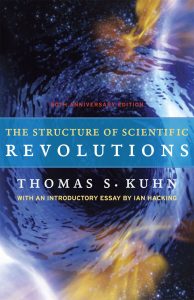
I choose this classic on the history and philosophy of science; it has enabled me, like many others, to appreciate the manner in which science progresses and knowledge grows.
Candice Jenkins (English and African American Studies)
Beloved by Toni Morrison
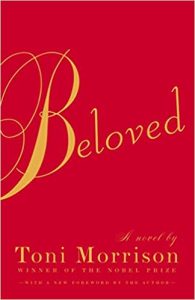
I first read Beloved as a bookish 13 year old. While most of its meaning, as a slavery novel, went over my head, I was absolutely captivated by the language. Beloved opened my eyes to literature as aesthetic and cultural medium–setting me on the path to a life’s work in Black literary and cultural studies.
Prasanth Kumar Kannanganattu (Cell and Developmental Biology)
Gene Machine: The Race to Decipher the Secrets of the Ribosome by Venki Ramakrishnan
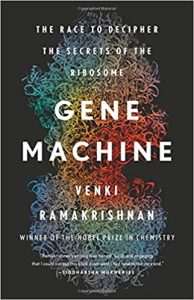
In this book, the author, Dr. Venki Ramakrishnan, a Nobel laureate in Chemistry, has provided an honest narration of his scientific journey in search of identifying the structure of ribosome. The author has perfectly captured joys and frustrations associated with the highly competitive scientific research.
Ayla Kenfield (University Library)
The Hundred Thousand Kingdoms by N.K. Jemison
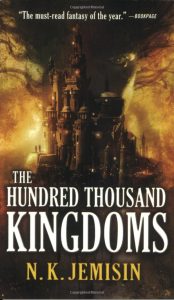
I’ve always loved speculative fiction. I chose this book because it is the first time I’d read a fantasy novel with a mixed-race woman as the main character. It was the first time I’d seen myself represented in a genre I’ve read my entire life.
Megan Konar (Civil and Environmental Engineering)
Globalization of Water by Arjen Hoekstra
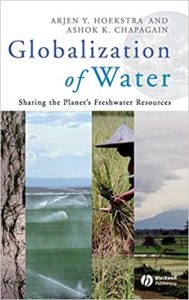
This was a huge inspiration to me in my early years as faculty. I used this for both research and teaching. Also, Arjen Hoekstra recently passed away so this is a great way for me to pay tribute to one of my inspirations.
Ranjitha Kumar (Computer Science)
Aha! Insight by Martin Gardner
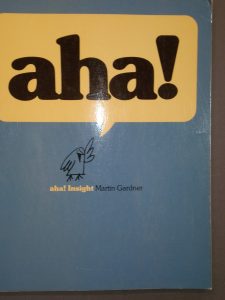
My dad bought this book for me when I was ten, and it sparked my love affair with paradoxes and logic puzzles.
Rakesh Kumar (Electrical and Computer Engineering)
The Butter Battle Book by Dr. Seuss
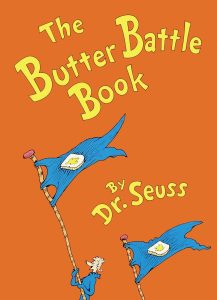
I used to read the book to my son when he was little. He liked the rhymes and I liked the message. Many years later, I still sometimes read the book. I like the rhymes and he likes the message. We continue to bond over the book.
Gee Lau (Pathobiology)
The God of Old: Inside the Lost World of the Bible by James L. Kugel
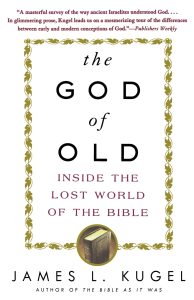
Kugel revealed the often neglected true nature of God in the Bible. The God of Old was not omnipotent, omnipresent, invisible. Rather, he dwelled among his people, and sought them out unexpectedly. The realm of spiritual, living, and the dead constantly overlapped, and God was just behind the curtain of the everyday world.
Joe Lenkart (University Library)
Catalog of Catalogs: A Bibliography of Temporary Exhibition Catalogs Since 1876 that Contain Items of Judaica by William Gross, Orly Tzion, and Falk Wiesemann

Through this source we can see the convergence of historic preservation, documentation, and collective memory, which amplifies voices and events that occurred over the past 140 years. Bibliographies, through their incredible diversity and versatility, can save time and nurture students, scholars, and librarians alike. That is why I selected this title.
Tara Leytham Powell (Social Work)
The Body Keeps Score by Bessel Van Der Kolk

The Body Keeps the Score provides deep and profound insights on my field of study–post-trauma recovery. The book describes how psychological trauma affects the brain, mind, and body, and discusses how we can rewire the brain to overcome traumatic life events.
Jessica Li (Education Policy, Organization, and Leadership)
The Seven Habits of Highly Effective People by Stephen R. Covey
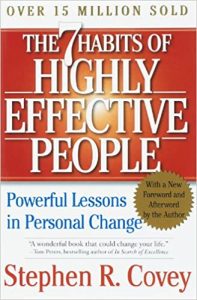
I continue to reflect on the two lessons I learned from the book. The first one is to focus my energy on the things that I can make a difference. The second is to take the time to figure out what are the important things in life.
Alexander Lipka (Crop Sciences)
Evolution and Selection of Quantitative Traits by Bruce Walsh and Michael Lynch
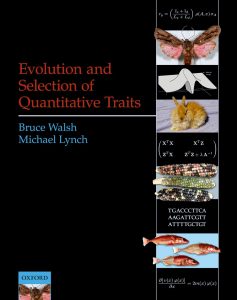
This is the second volume of arguably the standard “go-to” textbook for quantitative genetics. I learned so much about the research that I currently conduct from these authors, and so it would be an honor to use this opportunity to help guide the next generation of quantitative genetics researchers to this text.
Oscar Lopez-Pamies (Civil and Environmental Engineering)
Napoleon: The Song of Departure by Max Gallo
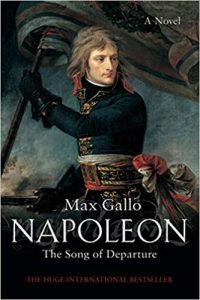
This is the first part of four by the late historian Max Gallo on the life of Napoleon Bonaparte. Although it is a historical account, it is written as a novel. It is one of my favorite books, chief among other things, because it is a testament to the power of determination of mankind.
Zeynep Madak Erdogan (Food Science and Human Nutrition)
The Book of Joy: Lasting Happiness in a Changing World by Dalai Lama, Desmond Tutu, Douglas Carlton Abrams

It gave me strength when I could not see the light at the end of tunnel.
Mary Pat McGuire (Landscape Architecture)
Mississippi Floods: Designing a Shifting Landscape by Anuradha Mathur and Dilip da Cunha
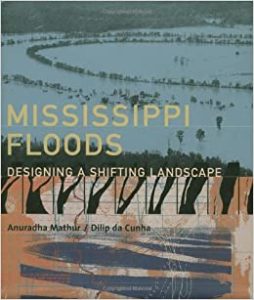
This book propelled my intellectual and creative consciousness toward the dynamic changing systems of our world and my passion to be involved in a deeper co-creation among people with water. My work aims to continue exploring and correcting the course of this relationship.
Rini Mehta (Comparative and World Literature)
The Gopal-Rakhal Dialectic: Colonialism and Children’s Literature in Bengal by Sibaji Bandyopadhyay; translated by Rani Ray and Nivedita Sen
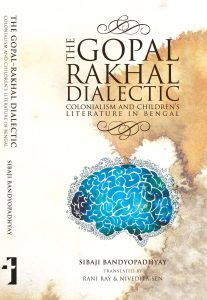
This book is the English translation of the first significant critical volume on children’s literature in India and its colonial connections. The author, Sibaji Bandyopadhyay, was my professor in the department of Comparative Literature at Jadavpur University, Kolkata, India.
Michael Miller (Food Science and Human Nutrition)
Jokichi Takamine: A Record of His American Achievements by K.K. Kawakami and John H. Finley
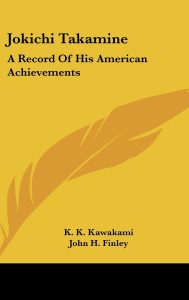
Takamine was a Japanese scientist that relocated to the US in the 1880s. He started a successful amylase company in Peoria, dealt with racism, discovered adrenaline, and coordinated the Japanese donation of cherry trees found in Washington DC. He was a tremendous scholar and statesman yet too few are aware of his accomplishments.
Daniel Miller (Natural Resources and Environmental Sciences)
Seeing Like a State: How Certain Schemes to Improve the Human Condition Have Failed by James C. Scott
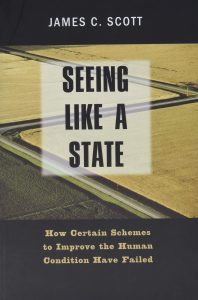
This book inspired me to want to become a scholar. It showed that well-designed social science research could be beautifully written. The central insight about the dangers of top-down planning blind to local conditions has resounded across my career as practitioner, researcher, and educator in international conservation and development.
Zahra Mohaghegh (Nuclear, Plasma, and Radiological Engineering)
Probabilistic Risk Assessment and Management for Engineers and Scientists by Hiromitsu Kumamoto, E.J. Henley, Ernest J. Henley
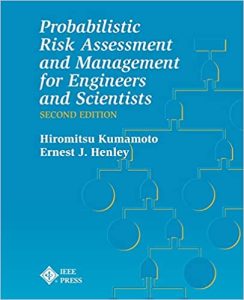
This book can be a good Probabilistic Risk Assessment-101 for sophomores or juniors to encourage them toward this path. I believe our next-generation leaders must begin to think differently, using risk-informed solutions to initiate safe, resilient, sustainable, and socially responsible technological advancements to usher in an era void of technological accidents.
Erik Nelson (Molecular and Integrative Physiology)
The Endocrine Organs: An Introduction to the Study of Internal Secretion by Sharpey-Shafer

When visiting my grandparents on a break from college, I found this text in a used-book shop in the little town of Moose Jaw. Although I was already interested in Endocrinology, this text which at the time was 75 year old, solidified my career choice.
Eunjung Oh (Education Policy, Organization, and Leadership)
E-Learning in the 21st Century by D. Randy Garrison
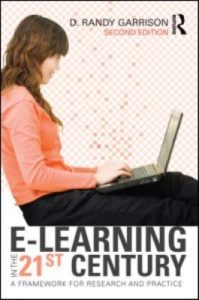
This book introduces a Community of Inquiry framework that guides our understanding, designing, and teaching of e-learning in higher education. The book has much influence on my own research and teaching. It is useful and insightful resource to faculty and instructional designers whose aspiration is in supporting students’ meaningful learning and active engagement in online environments.
Timur Oikhberg (Mathematics)
Handbook of the Geometry of Banach Spaces by W. Johnson and J. Lindenstrauss
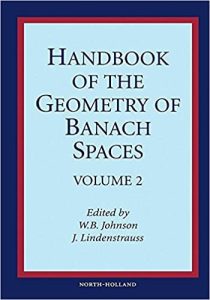
This books guides its reader through the wonderful world of Banach spaces, in a manner both clear and detailed.
James Pascaleff (Mathematics)
Topology from the Differentiable Viewpoint by John W. Milnor
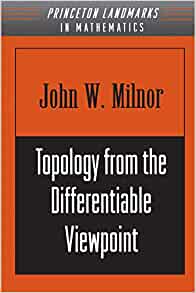
In this elegant book, John Milnor gives an introduction to topology that captured my imagination as an undergraduate. Topology is the only major branch of mathematics that was not discovered by the ancients, and Milnor was one of the leading researchers in this area in the 20th century.
Christian Ray (Chemistry)
The Power of a Plant: A Teacher’s Odyssey to Grow Healthy Minds and Schools by Stephen Ritz and Suzie Boss
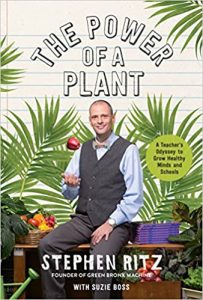
This book captures how I approach teaching: be willing to put yourself out there, make sure the students know you care, teach things that matter, help the students be successful (whatever that looks like), and have a great time doing it!
Laura Rice (Kinesiology and Community Health)
Spinal Cord Injury: Functional Rehabilitation by Martha Freeman Somers
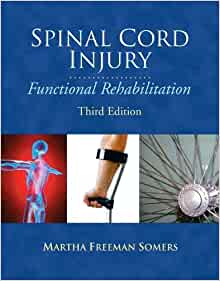
This book is written by a professor that I took many classes from during physical therapy school. Her classes were a significant source of inspiration and have shaped by my clinical practice and research agenda. This is one of the few healthcare related textbooks that place an emphasis on empowerment of individuals with disabilities.
Sandra Ruiz (Latina/Latino Studies and English)
Disidentifications: Queers of Color and the Performance of Politics by Jose Esteban Munoz
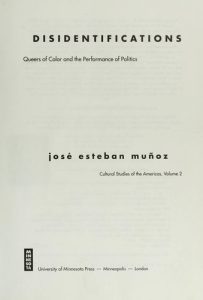
This book, written by my late mentor and advisor, radically changed my life. It confirmed for me that while unwanted by the mainstream, there were minoritarian social scenes waiting to be engaged, cultivated, and circulated. I felt less invisible after reading this book.
Vishal Sachdev (Business Administration)
The Master Algorithm: How The Quest For The Ultimate Learning Machine Will Remake Our World by Pedro Domingos
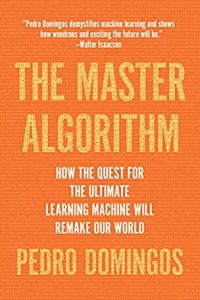
This book is a very good introduction to learning algorithms for a novice and shows a path towards possible superintelligence or a single algorithm that can learn it all.
Andre Schleife (Materials Science and Engineering)
Mr. Tompkins in Paperback by George Gamow
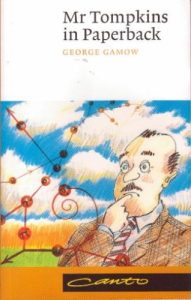
Learning about special relativity for a school project was instrumental to me, and ultimately brought me to studying physics. This book was a beautiful read on the side during that time. It beautifully manages the very timely challenge of bringing difficult science to a general audience.
Jessie Shelton (Physics)
Marietta Blau, Stars of Disintegration: Biography of a Pioneer of Particles Physics by Brigitte Strohmaier and Robert Rosner
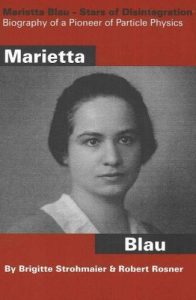
Marietta Blau’s pioneering work in particle physics has often been unjustly overlooked. This book is the only English-language biography of this important scientist, and discusses her contributions to science together with the story of her life.
Ryan Shosted (Linguistics)
Joseph Smith Papers, Revelations and Translations, Volume 4: Book of Abraham and Related Manuscripts by Robin Scott Jensen and Brian M. Hauglid
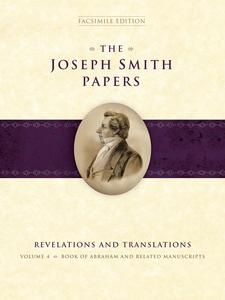
Like many Mormons, I began perusing ancient Egyptian funerary texts at a young age. The writings of Joseph Smith, Jr., including his efforts to find meaning in hieroglyphic and hieratic characters, inspired my lifelong interest in languages and linguistics.
Charles Sing (Chemical and Biomolecular Engineering)
The Theory of Polymer Dynamics by Masao Doi and Samuel F. Edwards

I have fond memories of struggling through this classic monograph early in my graduate studies, and am still learning from its extensive, detailed, and insightful treatment of polymer physics.
Paris Smaragdis (Computer Science)
The Technology of Computer Music by Max V. Mathews
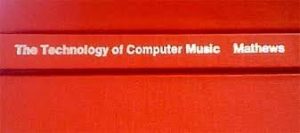
This is an amazing book that for many of us was the introduction on how to use computers to make music. Although half a century long, the research opportunities and directions in it are still fresh and can still inspire any reader.
Doug Smith (Social Work)
How To Write One Song by Jeff Tweedy
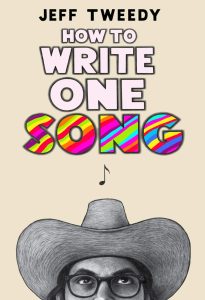
Get lost in your work, whatever that is. If you reach a state of focused concentration with everything fading into the background, you are doing it right.
Rebecca Smith (Pathobiology)
Framing Animals as Epidemic Villains: Histories of Non-Human Disease Vectors (Medicine and Biomedical Sciences in Modern History) by Christos Lynteris
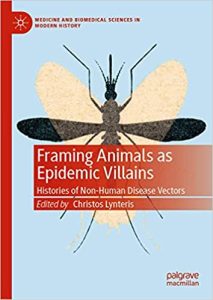
As someone working at the intersection of human, animal, and vector diseases, the concept of the framing of disease villains is fascinating to me. We should all reassess our perspective from time to time.
Ramon Soto-Crespo (English)
The Genealogy of Morals by Friedrich Nietzsche
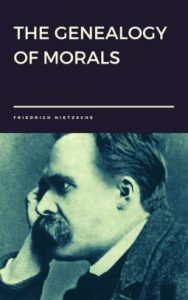
This book removed my blinders and provided me with fresh air.
Joel Spencer (Music)
Music is My Mistress by Duke Ellington
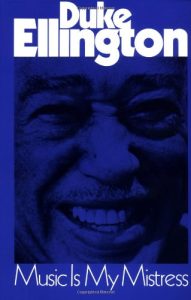
Duke Ellington reveals his desire to musically communicate with anyone who is willing to listen. Ellington penned more than two thousand compositions creating a musical art ingeniously fueled by his social surroundings and powerfully inspired by the joy and challenges of daily life. “Music is my mistress, and she plays second fiddle to no one.”
Vesna Stojanoska (Mathematics)
The Bandit Wind by Slavko Janevski
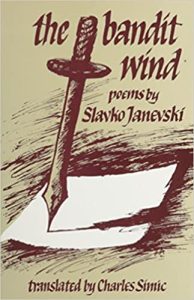
Growing up in Macedonia, the writings of Slavko Janevski shaped me more than I realized until recently. Unfortunately not much of his work has been translated into English. This poetry collection is brief but varied and reflects the transformations in Janevski’s work paralleling the developments in Macedonian culture after the Second World War.
Sameh Tawfick (Mechanical Science and Engineering)
Capillarity and Wetting Phenomena by Pierre-Gilles de Gennes
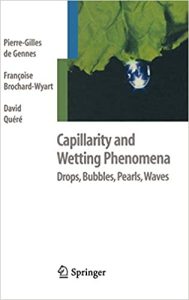
This book inspired me! It describes the beauty of physical phenomena, and the writing presents them with elegance. It is written by one of the best teachers in this area of soft condensed matter physics, and Nobel prize laureate Pierre-Gilles de Gennes.
Endalyn Taylor (Dance)
The Warmth of Other Suns: The Epic Story of America’s Great Migration by Isabel Wilkerson
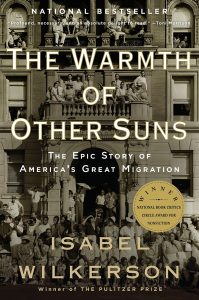
Profound and deeply moving, this essential read focuses on the stories of three African Americans, but relays the story of millions of Blacks, who lived in the Jim Crow South and migrated North in search of a better life. This was my parent’s journey and the beginning of mine.
Richard Tempest (Slavic Languages and Literatures)
Alexander of Macedon, 356-323 B.C. by Peter Green
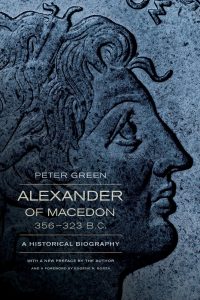
The best historical biography I have ever read. As a scholar working across different disciplines, national cultures, and time periods, I admire the author’s ability to connect to, and make vivid and relevant, figures and events from a world so very remote from our own.
John Toenjes (Dance)
Making Music for Modern Dance: Collaboration in the Formative Years of a New American Art by Katherine Teck
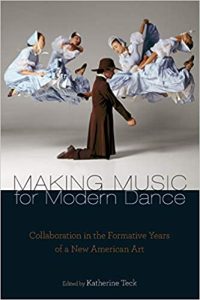
This is one of the important books documenting the history of my field. I have studied these writings deeply and regard them as foundational for an important history of American music, and profoundly influential in my career path.
Dan Tracy (University Library)
Moby Dick in Pictures: One Drawing for Every Page by Matt Kish
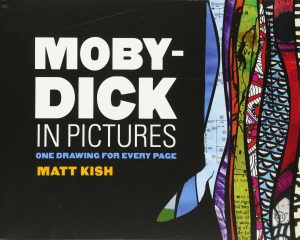
Moby Dick has inspired many spin-offs, but I’m a big fan of these interpretative illustrations. When Matt Kish was publishing these daily on his blog, I enjoyed how they captured the novel’s strange and varying moods. I loved it so much I wound up buying a couple of the original artworks after the book’s release.
Carena Van Riper (Natural Resources and Environmental Sciences)
Navigating Environmental Attitudes by Thomas A. Heberlein
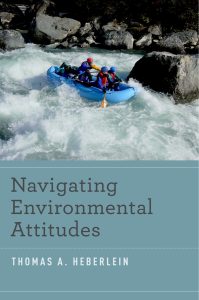
This book has been a source of inspiration for my research program since its publication in 2012. It not only synthesizes a fascinating area of research, but also presents scientific information in a compelling way that is of interest to students. I aspire to develop a book of this nature in my future career.
Helga Varden (Philosophy)
Middlemarch by George Eliot and Mary Ann Evans

Mary Ann Evans was an absolutely pioneering women philosopher, and Middlemarch is plainly a brilliant–and my favorite–philosophical work written in novel form.
Lav Varshney (Electrical and Computer Engineering)
Transmission of Information: A Statistical Theory of Communication by Robert M. Fano
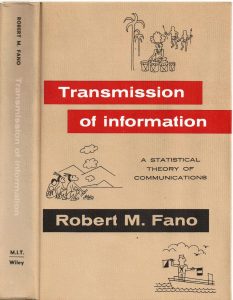
Information theory is fascinating and this is the first textbook on the subject, really emphasizing the architectural principle of separation and the universal interface of bits. Moreover, I had the pleasure of meeting the author. Later, I was thrilled by an email exchange where he called me Professor, when I first joined the Illinois faculty.
Brian Walters (Classics)
Controlling Laughter: Political Humor in the Late Roman Republic by Anthony Corbeill
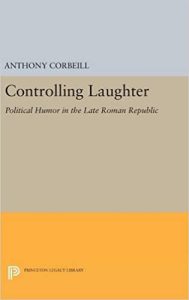
This is an outstanding book, and its author has been formative for every aspect of my professional life. If I’m ever half as good a scholar and write something even close to this good, I will count myself a success.
Kate Wegmann (Social Work)
Faith: Trusting Your Own Deepest Experience by Sharon Salzberg
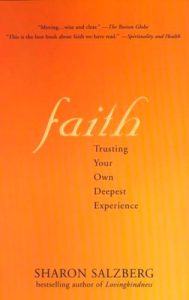
This book was recommended to me during a time in my life when I felt impossibly stuck. This book taught me that faith is simply acknowledging we don’t know everything, and that there is hope and possibility in the not-knowing.
Chris Wiley (University Library)
Scholarship in the Digital Age by Christine L. Borgman
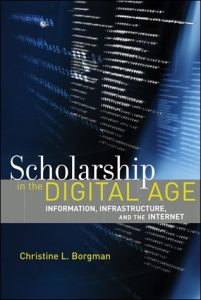
This book created the practice of thinking about scholarship and its meaning in the context of library services. It sparked my interest in wanting to know more about research and how it would be applicable to my interests.
Matthew Winters (Political Science)
Curbing Clientelism in Argentina: Politics, Poverty, and Social Policy by Rebecca Weitz-Shapiro
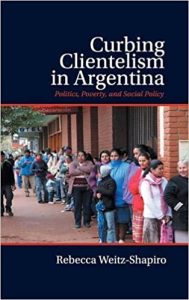
My closest and most frequent collaborator since graduate school, Rebecca Weitz-Shapiro deserves a substantial proportion of the credit for whatever professional success I have experienced. I continue to be inspired by her research and her keen mind, and I hope that others will be too.
Allison Witt (Education Policy, Organization, and Leadership)
Seven Decades of Mountain Climbing by Rod Harris
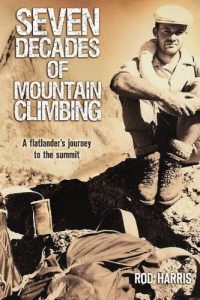
This book tells of an Illinois man exploring beyond flat horizons to discover a love for mountains, a passion he shared with his children. Written by my father with assistance from my mother, the stories explain my love for adventure. The authors gave me courage to explore– to reach high from the expanse of Illinois.
Sihai Zhao (Statistics)
The History of Statistics by Stephen Stigler
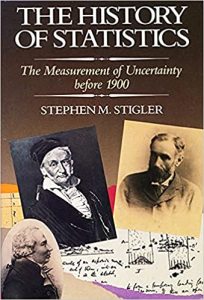
Paul Gauguin once asked (as I learned from Calvin and Hobbes), “Where Do We Come From? What Are We? Where Are We Going?” Stigler’s book answers the first question for statisticians. I suppose answering the second two questions is now up to us.
